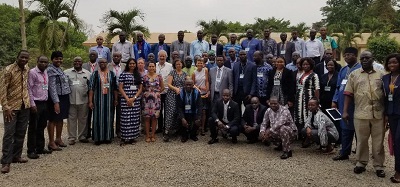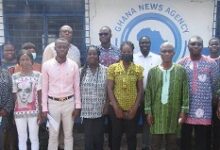
Fifty-three thousand hectares of degraded lands in the Sahara zone of Africa have been reclaimed, under the Great Green Wall (GGW) Initiative of the African Union.
The move is to boost agricultural production on the African continent in the phase of climate change.
Ms Nora Berrahmouni, Senior Regional Forestry Officer at the Food and
Agricultural Organisation (FAO) Regional Office for Africa disclosed this to
the Ghanaian Times here at the opening of a four-day training workshop on, “Scaling-Up
Resilience in Africa’s GGW Initiative.”
It was organised by the FAO in collaboration with the Forestry Research
Institute of Ghana of the Council for Scientific and Industrial Research
(CSIR-FORIG), the host.
Sixty-four delegates made up of research scientists from 14 African countries are attending the workshop to build capacity toward food security, in spite of climate change effects.
The GGW is Africa’s flagship initiative to combat the effects of
climatic change and desertification, to transform the lives of millions of
people in Africa. It is a partnership that supports communities working towards
sustainable management and use of forests, rangelands and other natural resources,
toward food security.
Ms Berrahmouni said the FAO was supporting the African Union Commission, the
Pan African Agency of the GGW, and six countries in preparing a Green Climate
Fund Project to scale up climate actions for the implementation of the African
Union GGW initiative to enhance food production.
According to Ms Berrahmouni, the FAO was poised to help communities mitigate
and adapt to climate change, as well as improve food security.
She noted that as a programming tool for rural development, the overall
goal of the partnership was to strengthen regional resilience and natural
systems with sound ecosystem management, protection of rural heritage, and
improved living conditions.
She mentioned that the FAO was providing funding to CSIR-FORIG to work together
to enable the latter bring on board experience on the establishment of rural
resource centres for production and distribution of good germplasm and its
associated challenges.
Ms Berrahmouni said with the experience of CSIR-FORIG hosting a national seed
centre, they would be in a position to collect, process, store and distribute
for planting both nationally and internationally.
Director of the CSIR-FORIG, Prof. Daniel A. Ofori was full of joy that Ghana
was supporting the initiative “due to our expertise in landscape restoration,
our ability to mobilise germplasm, seeds and seedlings, establishment of
nursery and production of quality germplasm”.
He said the Savannah zone of Ghana had a number of tree species and non -traditional forestry products that could be mobilised to support the GGW project.
FROM KINGSLEY E.HOPE, KUMASI







